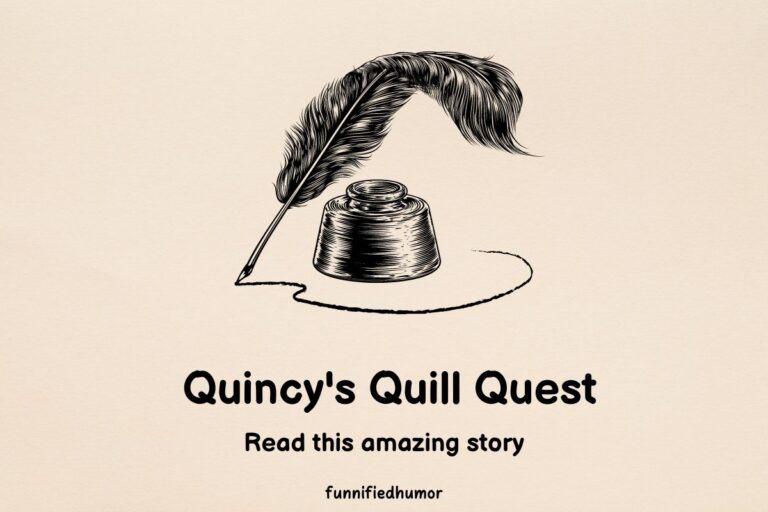Letters Long Forgotten

The train station of Redwood had an atmosphere of forgotten charm. Nestled among aging trees and paved with worn-out cobblestone roads, it was a vestige of a bygone era. At the heart of this tiny station was a rickety old wooden bench, chipped and stained from decades of use.
Jared was a local writer, his thin-rimmed glasses sitting on a nose speckled with freckles. He’d lived in Redwood all his life and, for reasons he couldn’t fully explain, was drawn to the old bench. He’d seen his share of lovers meeting, families reuniting, and individuals waiting with baited breath for the next chapter of their lives.
One evening, as the golden hues of sunset adorned the skies, Jared observed an elderly woman, Clara, sitting on the bench, her frail hands clutching a bunch of old letters tied with a ribbon. She seemed lost in her thoughts, occasionally wiping away a tear.
Feeling a surge of curiosity and compassion, Jared approached her. “Excuse me, ma’am,” he began hesitantly, “I couldn’t help but notice those letters. They seem to carry a lot of memories.”
Clara looked up, her pale blue eyes glistening. “Oh, these? They’re the very essence of my life. Letters from Robert, my husband. He’d write to me from the war front.”
Jared took a seat beside her, captivated. “May I…?” he asked, pointing at the letters.
She handed one over. The paper was brittle, yellowed with age, the ink faded but the emotions still palpable. It read:
My Dearest Clara,
Every night, I close my eyes and imagine I’m back on that station bench, holding you close. War is cruel, love, but the thought of returning to you keeps me going. Promise me that no matter what, you’ll wait for me there.
Forever yours, Robert.
Jared looked up, his heart heavy. “He must have loved you deeply.”
“He did,” she replied, her voice quivering. “Every month, like clockwork, a letter would arrive. But one month, the letters stopped.”
“What happened?” Jared whispered, dreading the answer.
“The war took him,” Clara responded, tears rolling down her wrinkled face. “But I made a promise. Every year, on our anniversary, I come here, to this bench, waiting.”
Jared felt a lump forming in his throat. “For fifty years, I’ve come here, hoping against hope that maybe, just maybe, there was some mistake. That he’d come back to me.”
The weight of Clara’s words filled the air. Jared felt like he was intruding on a private moment, a half-century of longing and loss crystallized on that old bench.
After a few minutes, Clara smiled weakly. “Life moves on, young man. But some promises, some memories, they anchor you to a place, to a time.”
Jared nodded, grasping the gravity of what the bench represented. “Would you mind if I wrote about this? About the stories this bench holds?”
Clara chuckled, “Go on. Maybe, in some small way, it will keep the memory of our love alive.”
As the evening train whistled in the distance, Jared began penning down the first of many tales that the bench had silently witnessed. The tales of heartbreak and hope, of promises made and memories cherished.
Days turned into weeks, and Jared found himself returning to the bench daily, not only to write but to observe. Each sitter, each whisper, each stolen glance had a story.
One evening, he noticed a middle-aged man named Samuel, his face etched with lines of worry. Beside him was a young girl, presumably his daughter, Isabelle, her face a mirror image of his but with an innocence that youth carried.
“Daddy,” Isabelle murmured, her fingers fidgeting with the hem of her dress, “Why did you and mommy get divorced?”
Samuel’s gaze was distant, searching for the right words. “Sweetie, sometimes, people grow in different directions. We both love you, that’ll never change. It’s just that, well, we couldn’t find a way to love each other anymore.”
Isabelle looked up, her hazel eyes searching her father’s. “Did you try?”
Jared pretended to be engrossed in his notebook, but he hung onto every word.
“We did, darling. For years. But sometimes trying isn’t enough.”
The two sat in silence for a moment, the chirping of evening crickets filling the void.
“Do you ever think about what it would be like if you both stayed together?”
Samuel sighed. “Every day. But that would mean pretending. And neither of you deserve a pretend family. You deserve love, in its truest form.”
Isabelle leaned into her father. “I miss seeing you every day, Daddy.”
Samuel wrapped his arm around her, pulling her close. “I miss you too, sweetie. But we have our moments, like now, on this bench. And they are ours, undiluted and real.”
As the two got up to leave, Jared felt an overwhelming sense of gratitude for these glimpses into raw human emotion. Every person who sat on that bench brought with them a universe of feelings, experiences, and histories. It was as if the bench had become a confessional, absorbing the pains, joys, hopes, and dreams of its sitters.
Jared scribbled down the conversation, preserving the tender moment between father and daughter. He realized the bench wasn’t just a mute spectator; it was a silent healer, a reminder that in the transient journey of life, some moments, some places remained constant.
The sun was beginning to set, casting long shadows and bathing the station in a golden hue. Jared’s pages were now filled with numerous stories and scribbles. He often lost track of time, so engrossed was he in the world unfolding around the bench.
That evening, a woman in her early thirties approached the bench. Her features were striking, not for their beauty, but for their intensity. Her eyes, however, had a distant look. In her hand, she held an old photograph.
Jared watched as she gently traced the faces in the picture with her fingers. Taking a deep breath, she began speaking, seemingly to the photo.
“Hey, little brother. It’s been ten years since you’ve been gone. It feels like a lifetime, yet sometimes, it feels like just yesterday.”
There was a long pause. She looked around, perhaps ensuring that no one was close enough to hear her next words.
“I wish you could see where I am now. Remember how we used to sit here and dream about the future? You wanted to be a pilot, soaring high above the clouds. And I wanted to be a writer, penning stories of adventure.”
Jared’s heart ached. He knew that longing, the wish to share successes and memories with someone no longer there.
She continued, her voice softer, “I made it, little brother. My first book got published last week. But without you, the joy feels incomplete. I owe you so much. You were my first reader, my biggest cheerleader.”
She let out a shaky laugh, “You were also my harshest critic. I miss that. I miss your honesty. I miss our dreams.”
A tear rolled down her cheek, “I keep coming back here, hoping to feel close to you, to our shared memories. This bench, our dreamscape.”
She placed the photograph down on the bench for a moment, a silent tribute to her lost sibling.
After a while, she gathered herself, picked up the photo, and left, leaving behind a palpable aura of love, loss, and nostalgia.
Jared felt a connection to her, a shared bond of using words to process pain. He jotted down the interaction, realizing that the bench was not just a witness to present moments, but also a bridge to the past, to memories cherished and held close.
The seasons shifted, and winter’s chill started to grip Redwood. The usually bustling train station saw fewer visitors, but the bench, as always, remained. On one particularly cold morning, a young couple, Lily and Max, braved the frosty air, sitting close together on the bench.
Lily clutched a small, white envelope in her hands, her fingers trembling. Max wrapped his arm around her for warmth and support. “Whatever the result, we’re in this together,” he whispered.
Lily nodded, tears glistening in her eyes. “I know, but I can’t help but be scared. We’ve tried for so long.”
Taking a deep breath, she opened the envelope. As she read the contents, her face went through a myriad of emotions: disbelief, shock, and then, elation.
“We… we’re going to have a baby,” she whispered, her voice choked with emotion.
Max’s eyes widened, and a broad smile lit up his face. “Really?” he asked, almost as if he couldn’t trust his ears.
Lily nodded, laughing and crying simultaneously. The couple embraced tightly, their happiness warming the cold morning.
Jared, from his usual spot, felt a warmth spread through him too. After recording stories of longing, pain, and memories, here was a tale of hope, of new beginnings.
Over the days that followed, Jared saw Lily and Max frequent the bench more often. It became their spot, a place to dream about the future, to plan and to hope.
The bench, in all its silent glory, had seen the entire spectrum of human emotions. It held the weight of tears, of laughter, of silent wishes, and loud proclamations.
Jared finally realized the story he was meant to tell wasn’t just about the bench or the people who sat on it. It was about life itself, in all its messy, beautiful complexity.
Closing his notebook, filled from cover to cover with stories, Jared felt a deep sense of gratitude. The bench had taught him more about life than any other experience. It was a testament to the human spirit, to the pain and joy that life brought with it.
And so, with a newfound appreciation for the world around him, Jared set forth to share these stories with the world, reminding everyone of the beauty in the mundane, and the stories waiting to be discovered in the most unexpected places.





